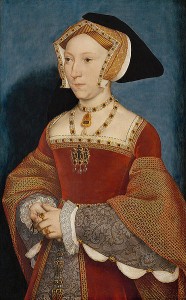 On this day in Tudor history, 1st April 1536, the imperial ambassador passed on information he’d received from two separate sources to his master, Emperor Charles V. The news was regarding Henry VIII and his behaviour towards one of his wife’s ladies-in-waiting, a certain Jane Seymour.
On this day in Tudor history, 1st April 1536, the imperial ambassador passed on information he’d received from two separate sources to his master, Emperor Charles V. The news was regarding Henry VIII and his behaviour towards one of his wife’s ladies-in-waiting, a certain Jane Seymour.
Find out exactly what happened, what Henry and Jane were up to, and how long this had been going on, in today’s “on this day” video, which you will find below.
I realise that not everybody enjoys the video format so here is a link to read the article on which this video is based: